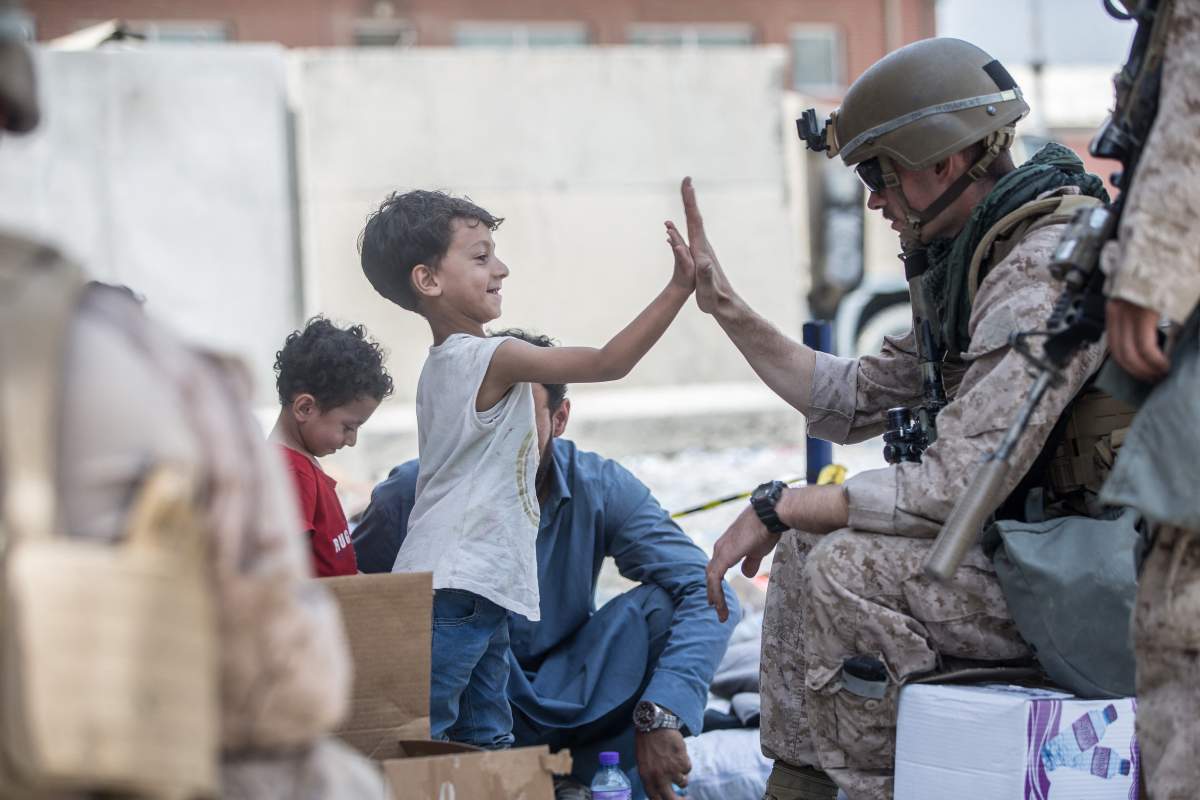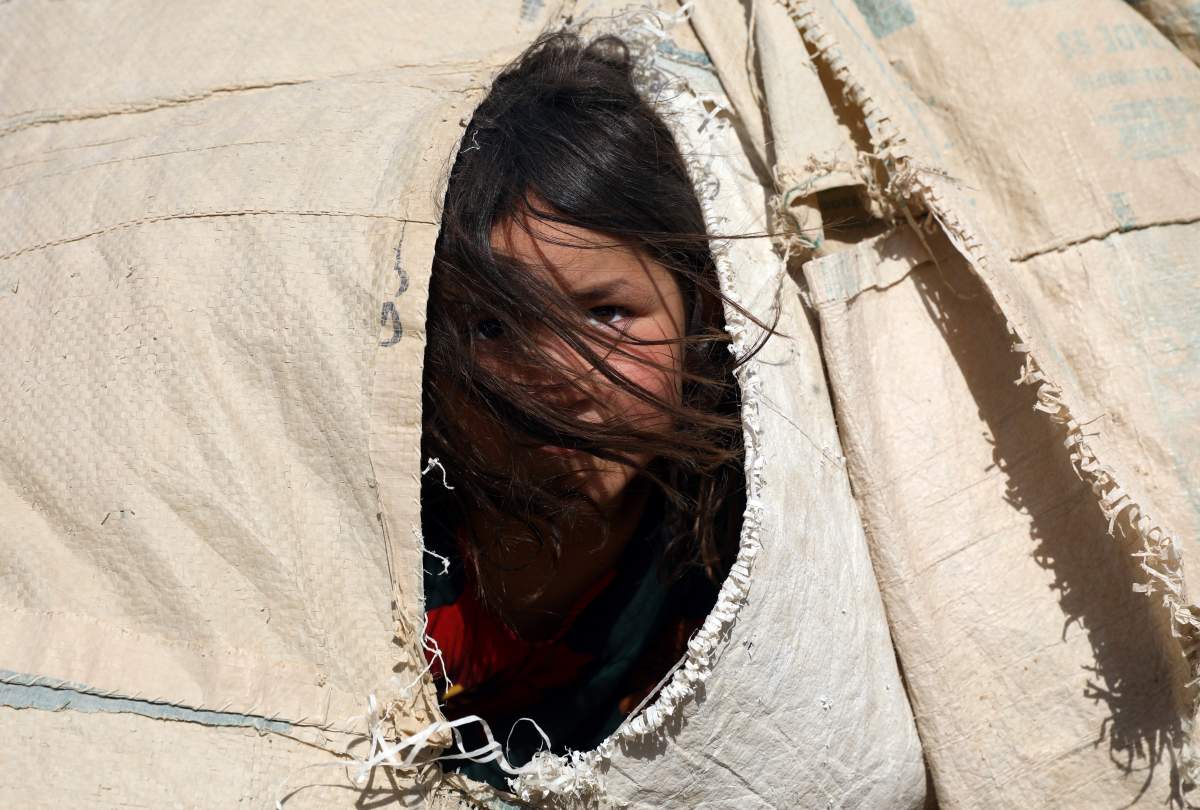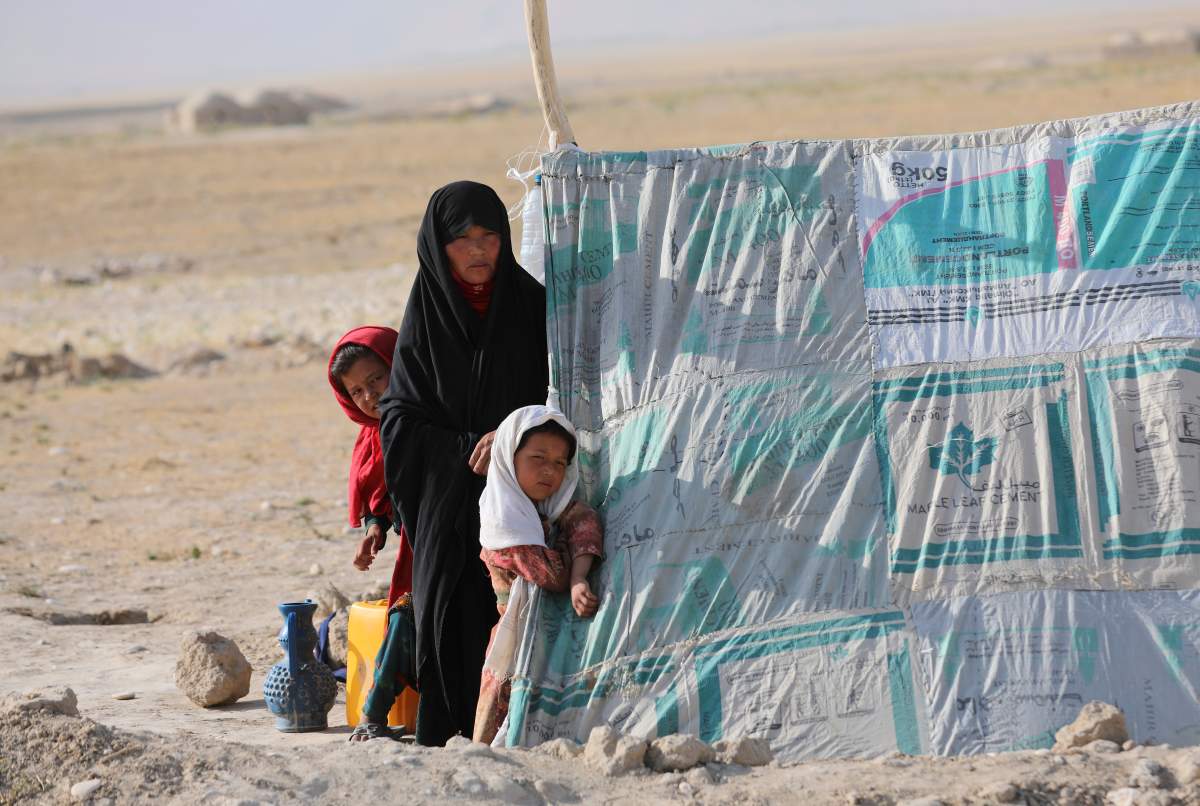For weeks, the threat of further chaos and suffering in Afghanistan has been visceral, pressing near enough to haunt the re-election campaign of a prime minister half a world away.

Now, everything that was once feared is here.
“This is a very difficult day. Not just for Afghans but for people around the world including Canada, who have long been deeply committed to the Afghan people,” said Prime Minister Justin Trudeau, speaking to reporters from the trail of the campaign he chose to request on Aug. 15.
Moments earlier, the country’s acting chief of the defence staff had been blunt.
“Over the last day, our evacuation operations have ceased,” said Gen. Wayne Eyre in a media briefing.
Throughout the briefing, Eyre emphasized the toil of Canadian soldiers who had been working to try to get desperate people into the Kabul airport and on board the dozens of allied military evacuation flights that have been operating out of the U.S.-held airport since Aug. 19.
Many have been going days without sleep, he said, while witnessing “horrific things.”
There are a lot of questions that remain to be answered about the way the evacuation effort unfolded.
Why did it take so long to start evacuating Afghans who put their lives at risk to help Canada?
Why were political and military leaders caught seemingly unprepared by the Taliban’s lightning blitz?
What happens to the people still left on the ground in Kabul, now officially warned by the Canadian government: “you are responsible for your own safety and that of your family.”
There are no answers yet to those questions, or about whether the fate of those left behind will stalk the Liberal re-election campaign like the horrifying image of a drowned Syrian refugee child did with the Conservative campaign in 2015.
For now, what is clear is that the Canadian focus is shifting: away from evacuation, and towards moving forward with humanitarian aid and the processing in neighbouring states of what will likely be floods of applications for asylum from those able to escape in the coming days, and weeks, and months.

Get breaking National news
Here’s what we know about what happens next.
Canada upping humanitarian aid to Afghanistan
- Federal government raises concerns over OpenAI safety measures after B.C. tragedy
- Free room and board? 60% of Canadian parents to offer it during post-secondary
- Ipsos poll suggests Canada more united than in 2019, despite Alberta tensions
- Indigenous leaders outline priorities for spring sitting of Parliament
The shift in focus sharpened as officials in the briefing addressed the end of the evacuation effort.
Daniel Mills, assistant deputy minister for Immigration, Refugees and Citizenship Canada, said he feels the “deepest regrets” for those left behind but that the government is moving to another stage.
“Canada will begin to focus on the next phase of our operation,” he said.
“So in the coming weeks and months we will work with our international partners including the United Nations on our humanitarian work.”
Shortly after the briefing, the government issued a press release saying Canada will be increasing its humanitarian aid to “trusted” organizations that work on the ground in Afghanistan.
While the government had previously earmarked $27.3 million for Afghanistan this year, another $50 million is being pledged as an initial start on the humanitarian work to be done in the country.
More could come based on any appeals from the Red Cross and the United Nations.
That aid will be deployed through organizations the government has worked with extensively before: the World Food Program, the UN Office for the Coordination of Humanitarian Affairs, the UN High Commissioner for Refugees, and the International Committee of the Red Cross.
Those partners have “operational capacity on the ground both inside Afghanistan and in neighbouring countries,” Global Affairs Canada said in the press release.
“With Canada’s support, humanitarian partners will provide life-saving assistance, such as food, support for health care, clean water and sanitation.”
More than 270,000 Afghans have been internally displaced this year because of Taliban advances as foreign troops withdraw from the country, according to the United Nations.
In total, about 3.5 million people in the country are now displaced.
What will happen to those who escape Afghanistan?
Many of those displaced people have been fleeing towards Pakistan in recent weeks and months, while others have made the decision to try to get towards Europe on foot.
The Associated Press has reported some of those trying to get to Europe via Belarus are being caught in the Baltic states which accuse the Belarusian president of an act of “hybrid war” for letting the refugees across and into European borders.
Officials speaking on Thursday said Canada is focusing now on working with neighbouring states moving forward but did not elaborate.
Afghanistan has land borders with Iran in the west, as well as Turkmenistan, Uzbekistan and Tajikistan to its north, and Pakistan to the east. Canada, however, does not have diplomatic relations with Iran and does not have an embassy in either Turkmenistan or Tajikistan.
There is a small consulate in the capital of Uzbekistan, however, along with the Canadian high commission located in Islamabad, Pakistan, and smaller consulates serving in that country’s cities of Karachi and Lahor.
Global Affairs Canada did not answer when asked whether staffing levels at those consulates and the high commission will be increased to deal with any increase in applications for asylum from those who have managed to cross the border from Afghanistan into Pakistan.
Dave Perry, vice-president of the Canadian Global Affairs Institute, told Global News on Wednesday that he expects the approach by Canada towards helping those in need will likely mirror the approach taken in Kabul, which largely relied on people getting themselves to the airport.
“The circumstances are going to change to: we will help you if you can get out of Afghanistan, if you can get to the border,” he said.
“But I think it’s looking very clear that we’re not going to have Canadian people on the ground being able to offer any kind of really substantive assistance in that type of effort.”
For many, though, that will likely be easier said than done, said Reyhana Patel with Islamic Relief Canada.
The non-governmental organization has worked on the ground in Afghanistan for roughly 20 years promoting literacy and trying to reduce poverty.
“The current situation right now is that there is a lot of displaced people who have fled to Kabul. A lot of these people are kind of stuck in that situation, a lot of them have used their life savings to try and get out of the country so they’re unable to get back home even if they wanted to,” she said.
“The most pressing issue right now would be those displaced people in those open spaces, but also the food insecurity. It is a country that has been instable for a while now and the food shortages, shelter, water, it’s only going to get worse and I think that’s where Canadians can step in and try to help as much as possible.”











Comments
Want to discuss? Please read our Commenting Policy first.